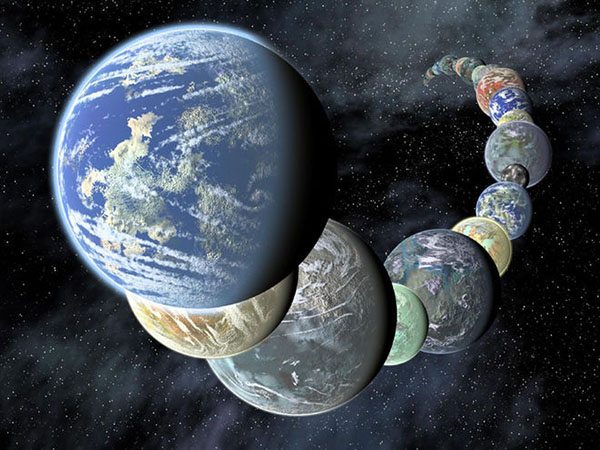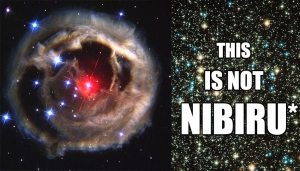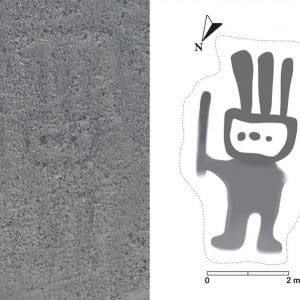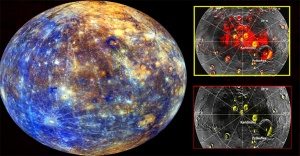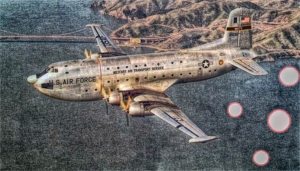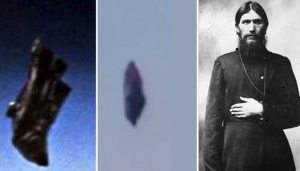Winston Churchill, one of the most influential politicians of the 20th century once wrote an essay on alien life. It was never published but it really should have been.
Just as the humanity was gearing up for the Second World War, Winston Churchill was about to become Prime Minister of the United Kingdom. But his brilliant mind took a break from devising strategies and for a short while delved into a subject that now interests us more than ever: alien life.
In 1939, the statesman penned an eleven-page essay exploring the possibility of life appearing and evolving on extraterrestrial worlds. And his conclusion is all the more staggering when you consider the fact that it came from one of the world’s most clear-minded men who held positions of power.
With hundreds of thousands of nebulae, each containing thousands of millions of suns, the odds are enormous that there must be immense numbers which possess planets whose circumstances would not render life impossible.” – Winston Churchill
Churchill was an avid reader with vast knowledge on a variety of subjects. He also wrote essays about biology, evolution and fusion power because he enjoyed writing and the pursuit of wisdom.
So why haven’t we heard about his essay on aliens until now and why did it take so long for it to see the light of day?
We can imagine that after writing the essay, Churchill’s attention and energy was directed towards the battlefield; there was a war to fight. But sometimes in the 1950s, he went through his papers and decided to revise it while staying at a publisher’s villa. But somehow it managed to avoid being published and was overlooked until the 1980s, when the publisher’s wife donated it to the U.S. National Churchill Museum.
It was only last year that director Timothy Riley accidentally discovered the essay in the museum archives. Riley realized the importance of his find and enlisted the help of astrophysicist Mario Livio, who was staggered by the futuristic views and the clarity of ideas expressed in Churchill’s papers.
“To me the most impressive part of the essay—other than the fact that he was interested in it at all, which is pretty remarkable—is really the way that he thinks,” Livio wrote. “He approached the problem just as a scientist today would. To answer his question ‘Are we alone in the universe?’ he started by defining life. Then he said, ‘OK, what does life require? What are the necessary conditions for life to exist?'”
One such condition, Churchill believed, was the presence of liquid water on a planet’s surface. Decades before we even knew exoplanets existed, the man who would later refuse to surrender to Nazi Germany also refused to surrender to the kind of vanity that says we’re special, therefore alone. We might be special, but we’re certainly not alone.
Just like modern hunters for alien life, Churchill suspected water might not be the only medium that sustains life and admitted different types of biochemistries could exist. But he correctly assumed that we should be looking for the type of life we know exists because we wouldn’t know what else to look for.
And he reasoned with great accuracy that said life could only flourish on rocky, Earth-like worlds that managed to keep an atmosphere and orbited their stars in the habitable zone.
Churchill was convinced the sheer size of the universe warranted a mind-boggling number of places that could meet these conditions. And back then, astronomers had more conservative estimates regarding the total number of stars in the observable universe.
The sun is merely one star in our galaxy, which contains several thousand millions of others,” Churchill wrote. “Our sun may be indeed exceptional, and possibly unique but I am not sufficiently conceited to think that my sun is the only one with a family of planets.”
But above all, Churchill was a realist. He knew just how long astronomical distances were and reasoned that even though alien life was possible, contacting such life forms would be impossible with the technology available at that time. Therefore, he wrote that in the near future, mankind’s collective gaze should hit closer to home, in our own Solar System. “One day, possibly even in the not very distant future, it may be possible to travel to the moon, or even to Venus or Mars,” he wrote.
Almost eight decades after the essay was penned, the issues it explores are an obsession for both scientists and the general public. We now know water once flowed on Mars and Venus. We are looking for signs of life in the Solar System and farther away in the cold depths of space. Science will probably give us the answer to one of our most ardent questions, but as Churchill wrote, we should be wary of becoming a purely scientific race.
A humanist in essence, he said that “we need scientists in the world but not a world of scientists.” At all times, science must be “the servant and not the master of man” and for that to happen, our world must be centered on values that stem from a deeper understanding of the human spirit and governed by humans for humans, not against them.
So there’s still a long way to go.


